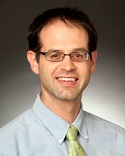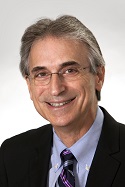TUE 1 NOV // 8:00 AM – 12:00 PM
Primary Content Focus: Cross-cutting, Clinical research
The purpose of this course is to assist new physician or other clinician investigators and key research staff in improving their skills and understanding of the principles and practices used in the successful execution of patient-oriented research. Participants will gain insights to enhance their ability to perform quality research according to existing regulations and guidelines. The course is open to physicians, nurses, therapists, and other healthcare professionals involved in or interested in clinical research. The program will share information and create an opportunity for dialogue among attendees and program faculty.
LEARNING OBJECTIVES
- Present methods for critical analysis of the literature and if/when/how to apply to clinical practice.
- Describe the current landscape of clinical research and opportunities for physician and clinical investigators.
- Discuss issues in the design, conduct, and management of successful clinical research studies.
- Describe avenues for dissemination and collaboration.
- Discuss case examples of implementation of good clinical research practices.
KEY WORDS
- Clinical Investigator
- Research
- Clinical Study
- Clinical Protocols
FACULTY
 Brad Kurowski, MD, MS
Brad Kurowski, MD, MS
Associate Professor, Cincinnati Children’s Hospital Medical Center and University of Cincinnati College of Medicine
Dr. Kurowski is a rehabilitation physician trained with an expertise in brain injury medicine and pediatric rehabilitation medicine. The overall goal of his clinical and research pursuits is to develop better precision management approaches for pediatric brain injury. His clinical and research work in pediatric traumatic brain injury (TBI) is focused on two broad areas: (1) better understanding individual, injury-related, and socio-environmental factors associated with recovery after brain injury and (2) improving evidence-based management of brain injury of all severities using novel treatment approaches and clinical trial design methodology. Dr. Kurowski is interested in how medical, behavioral, physical therapy, and other interventions, individually and in combination, can be used to facilitate recovery after brain injury. In the future, he envisions expanding his work to develop improved neurorehabilitative approaches for children with a range of congenital and acquired neurologic disorders.
 Douglas Katz, MD, FACRM, FAAN
Douglas Katz, MD, FACRM, FAAN
Professor, Boston University School of Medicine, Braintree Rehabilitation Hospital
Dr. Katz is a neurologist, with specialty training in behavioral neurology. He has been the director of the acquired brain injury program at Braintree Rehabilitation Hospital since 1986 and has nearly 30 years of experience in the field of brain injury rehabilitation. Dr. Katz has been involved in numerous federally funded projects. He has over 50 peer-reviewed publications and numerous abstracts and book chapters. He has a tremendous breadth of expertise across education, research, and clinical domains in rehabilitation medicine.
 Flora Hammond, MD, FACRM
Flora Hammond, MD, FACRM
Chair, Department of Physical Medicine & Rehabilitation, Indiana University School of Medicine, Rehabilitation Hospital of Indiana
Dr. Hammond is a board-certified physiatrist who completed her medical degree at Tulane University School of Medicine, Physical Medicine and Rehabilitation residency at Baylor College of Medicine, and brain injury fellowship at the Rehabilitation Institute of Michigan. Dr. Hammond is an active clinician, researcher, and administrator. She is professor and chair of the Department of Physical Medicine and Rehabilitation at Indiana University School of Medicine; Chief of Medical Affairs and Brain Injury Medical Director at the Rehabilitation Hospital of Indiana; and project director of the Indiana Traumatic Brain Injury Model System. Dr. Hammond’s research and advocacy focused on addressing the long-term issues confronting individuals with disability and the effectiveness of treatment strategies to improve outcomes. She has authored more than 125 peer-reviewed publications. Dr. Hammond’s accomplishments in the field have been acknowledged by several awards, including the 2001 Association of Academic Physiatrists Young Academician Award, the 2011 Brain Injury Association of America William Caveness Award, and the 2016 Robert L. Moody Prize for Distinguished Initiatives in Brain Injury Research.
 Mike Jones, PhD, FACRM
Mike Jones, PhD, FACRM
Director, Virginia C. Crawford Research Institute, Shepherd Center
Dr. Jones is Vice President of Research and Technology at the Shepherd Center and co-director of two rehabilitation engineering research centers with partners Georgia Tech, Duke University, and Northeastern University. A behavioral analysist by training, Dr. Jones’ research interests address the design and management of programs and services that promote full inclusion of people with disabilities. His work includes applications of universal design, information and communication technology, and behavior management strategies to promote health, wellness, and community participation.
One full day of Instructional Courses: $199 // Three full days: $399
WORLD PASS (from $599) is the best value if you attend the CORE Conference and just one instructional course.
CLICK HERE for pricing detail.
CONFERENCE HOME PAGE >>>
ALL PRE-CONFERENCE COURSES >>>
*Although significant changes are not anticipated, all schedules, sessions, and presenters posted on this website are subject to change.










